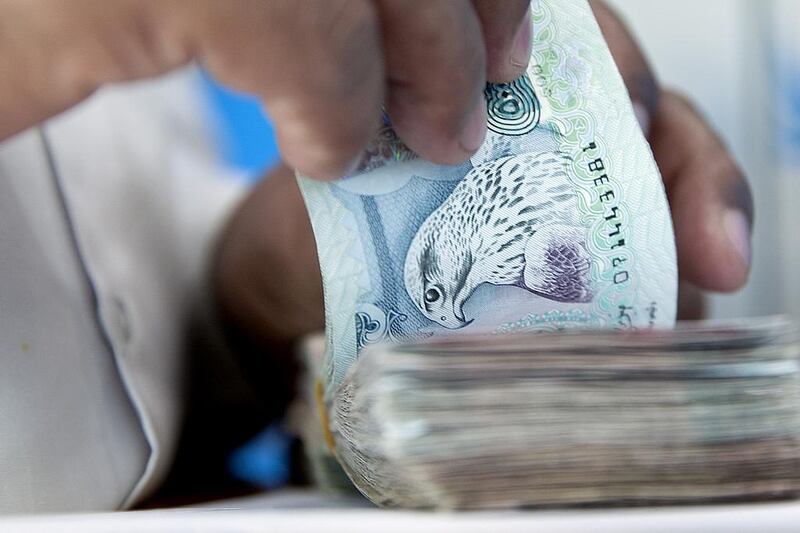UAE banks are set to report record first quarter earnings when they release results in the coming weeks. Dubai Islamic Bank (DIB), Emirates NBD and Mashreq, lenders that were hit hard by the financial crisis of 2008, are expected to lead the pack in earnings.
“We remain very bullish on the UAE,” said Jaap Meijer, the head of financials research at Dubai-based Arqaam Capital. “We believe the strongest growth to come from the Dubai-based banks. The strongest profit increase should come from Dubai Islamic Bank, Emirates NBD and Mashreq bank.”
Banks here reported record earnings last year amid an economic recovery that propelled GDP growth above 4 per cent as the government spent more money on infrastructure projects and cheap financing led businesses to borrow to expand their activities. Retail clients of banks took the opportunity to leverage for home, car and other purchases.
The UAE also has been a safe haven in the emerging markets sector. Along with Dubai’s clinching of Expo 2020 in November, that has bolstered confidence and helped pump up real estate and stock prices. As a result, this year is likely to be even better for bank profits than last year, analysts said.
Of the banks set to report in the next month or so, Emirates NBD, Dubai’s biggest bank, may report a first-quarter net income increase of 9 per cent to Dh911.7 million compared to Dh836m in the same quarter of the previous year, according to earnings estimates compiled by Bloomberg.
DIB may report a first quarter profit of Dh491.5m, up 62.9 per cent from Dh301.7m in the same period the previous year, according to the data. Arqaam estimates that Mashreq will report a group net income increase of 22.6 per cent to Dh549m in the first quarter versus Dh448m from the same quarter the previous year.
“In general terms, the quarter for banks is positive,” said Taher Safieddine, an analyst at the Dubai-based investment bank Shuaa Capital. “What we’ve seen in 2013, especially towards the latter part of 2013, on the asset quality is that an improvement has taken place. Non-performing loan formation has slowed down, coverage ratios have increased and this would definitely bode well for banks moving into 2014.
“We should see a continuation of the story, better asset quality and non-performing loans under control. The economy is improving, purchasing power is improving. Risk appetite is back on.”
Dubai banks were hit hard by the credit crisis in the UAE in 2009 because of their overexposure to commercial real estate, Mr Safieddine said. Meanwhile, Abu Dhabi banks fared better because they were well capitalised and did not have as many bad loans as other banks in Dubai that took on greater risk.
While margins for banks are declining because of low interest rates, the flip side is that cheap financing will propel loan growth – which Arqaam estimated grew 11 per cent in the first quarter.
Eibor, the interest rate at which banks lend to each other, is hovering near an eight-year low. The 12-month Eibor stands at 1.16571 per cent. Since 2006, when records began, it has averaged 2.83 per cent, reaching a high of 5.52 per cent in 2007.
mkassem@thenational.ae





